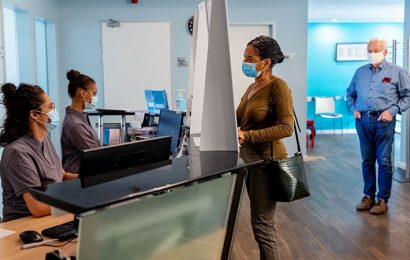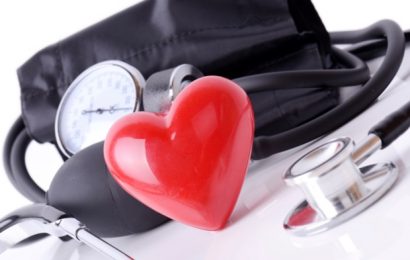Though many people love this time of year, for others, Christmas and New Year can be overwhelming and triggering.
It can be especially hard because mental health services are often closed, as are many GP surgeries. But if you find yourself in a mental health crisis, there are still ways to get help without waiting until these services open up again.
A mental health crisis often means that you no longer feel able to cope or don’t feel in control of your situation. You may be feeling great emotional distress or anxiety, are unable to cope with day-to-day life or work, have suicidal or self-harm thoughts or are experiencing hallucinations.
According to Mind, a person in crisis can also experience panic attacks, flashbacks, hypomania or mania and psychosis.
Some people feel in crisis as part of ongoing mental health problems or due to stressful and difficult life experiences such as abuse, bereavement, addiction, money problems or housing problems. Or there might not even be a particular reason.
Every mental health crisis is different, and it’s important to know that it is always OK to ask for help.
Here’s how you can go about getting urgent help for a mental health crisis when services are limited.
If you desperately need to talk, call Samaritans
If you’re feeling distressed and need to talk to someone, you can call Samaritans 24/7 on 116 123. It is a confidential listening service, it’s free and they will not tell you what to do or even give you advice. They are just there to listen.
If you prefer, you can also email them or visit a Samaritans branch in person.
It’s also important to know that the Samaritans won’t call an ambulance unless you ask or become unconscious during the call, and everything you say goes no further than between you and the volunteer.
This can be nice because you won’t receive any unsolicited advice, judgemental comments or unwanted suggestions. They literally are just a shoulder to cry on.
Contact your GP for an emergency appointment
Your GP surgery will likely be open on days that aren’t holidays. For example, for the time between Boxing Day and New Year’s Eve, and after New Year’s Day.
If you are in a mental health crisis and you need urgent help, call your GP surgery on their opening days and explain to them that you need an emergency appointment.
Emergency appointments aren’t just for physical illnesses, they are there for mental illnesses, too.
You don’t have to go into full detail with the receptionist if you don’t feel comfortable doing so, but make sure that you are firm and explain that you absolutely need to see someone today – especially if you feel you are a danger to yourself.
Your GP will be able to best advise you on what to do and will be able to make urgent referrals to the care team that best suits you. They may also advise you to go to A&E or fast-track you to see the crisis team.

Do you have a local Crisis team?
You can check online to see if you have a local Crisis team.
Crisis resolution and home treatment teams can support you if you have a mental health crisis outside of hospital. They’re called crisis teams for short, though they may be called something different in your area.
Crisis teams are for people who need urgent support, and who are already in contact with their local mental health services. Generally they help those who need ongoing support after visiting A&E or staying in hospital.
Crisis teams support people who might otherwise need to go to hospital, for example due to psychosis, severe self-harm or suicide attempts. They usually include a number of mental health professionals, such as a psychiatrist, mental health nurses, social workers and support workers.
One of the best things about crisis teams is that they see you in the comfort of your own home, so the experience isn’t too overwhelming and you have home comforts to keep you grounded.
They will visit you for a set period of time, and they will be able to offer advice and guide you onto what help you need after you’re finished with them.
The most important thing to remember is that they will not leave you without support after your treatment with them is over.
You can access your local crisis team in a variety of ways; contact them yourself if you’re already in touch with them, get referred by your GP or A&E, or through a care plan by your community mental health team.
Don’t know where to turn? Call 111
If you’re unsure of who to contact in a crisis, call 111 – they will be able to advise you on what to do.
They may be able to give you out-of-hours GP appointments, a referral to the hospital or even just self-care advice.
Go to A&E
If you can’t get a GP appointment and you urgently need help, go straight to A&E.
A&E is not just for physical emergencies, they have staff there to deal with mental health emergencies, too. So don’t worry about adding waiting time to people in physical need, your mental health is just as important.
Going to A&E for your mental health can be a daunting experience, especially as it’s such a sensitive issue. So sensitive, in fact, that you might not wish to discuss it in public – so when the receptionist asks why you would like to check in, ask if they have a pen and paper so that you can write down your reason for being there instead of saying it out loud.
It might be less stressful for you.
Though you will have the same wait time as everyone else to see a triage nurse, you won’t be waiting the same time afterwards, as you will likely see an on-duty mental health professional.
Due to the mental health services being overstretched, it could be a few hours before you see anyone – so it’s worth taking a book and a pair of headphones, if that keeps you calm and relaxed while you wait.
People are often scared to go to A&E for a mental health crisis, because they fear that they will be hospitalised, however this is quite rare. The mental health services will do all that they can to keep you out of hospital. This is a last resort, unless you are a danger to yourself.
They have your best interests at heart and are there to look after you, so be honest with them about how you’re feeling.
And remember, a mental health crisis is nothing to be ashamed of – the sooner you get the help you need, the better.
If you are in immediate danger to others or yourself, call 999
Finally, if you are in immediate danger, have self-harmed and need urgent help – or are in any other danger to yourself or others – call 999.
Source: Read Full Article


